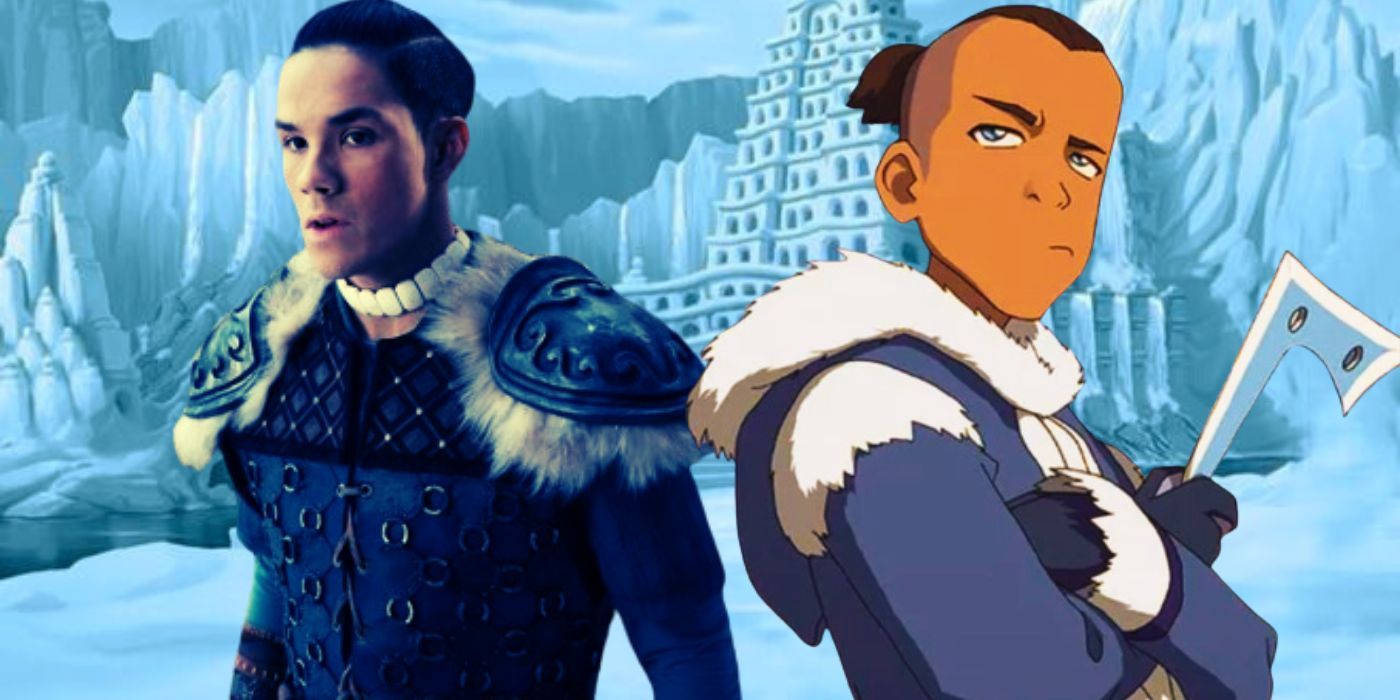Some may have had reservations about a live-action re-interpretation of Avatar: The Last Airbender, especially after the critical and commercial failure of M. Night Shyamalan’s attempt to bring one to the big screen in 2010; but what little that’s been shown of the upcoming Netflix series has managed to ease most of those worries. Even though the excitement among the fans continues to rise with each newly released trailer and image from the new series, there’s been one piece of recent news regarding a certain character that has them wondering what the point of it even is.In a recent interview, Ian Ousley and Kaiwentiio, the respective new actors for Sokka and Katara, touched on some of how the show will make an effort to stand out against the original animation and all the changes that the new show will be implementing to do so. One of these changes involves completely removing (or at least significantly toning down) Sokka’s blatant sexism from the original show’s first season. The announcement of this change has led to a lot of discussion and has even sparked some controversy among the Avatar fan community. But is this new change worth the benefit of the doubt, or is the controversy warranted given how well the original show handled Sokka’s character arc with it?For many fans, young and old, to label Avatar as simply just a “kids show” does a great disservice to the amount of love and detail that the writers and artists put into crafting every aspect of its story and themes. It was made for kids in the same way that shows like Adventure Time and Batman: The Animated Series were; it was certainly made with kids in mind, but it was also clearly intended to be enjoyed by adult viewers just as much. All things considered, it was a surprisingly mature show for the network it was on, and the way that it handled its themes and the ongoing development of such characters as Sokka certainly proves that.
Some may have had reservations about a live-action re-interpretation of Avatar: The Last Airbender, especially after the critical and commercial failure of M. Night Shyamalan’s attempt to bring one to the big screen in 2010; but what little that’s been shown of the upcoming Netflix series has managed to ease most of those worries. Even though the excitement among the fans continues to rise with each newly released trailer and image from the new series, there’s been one piece of recent news regarding a certain character that has them wondering what the point of it even is.
In a recent interview, Ian Ousley and Kaiwentiio, the respective new actors for Sokka and Katara, touched on some of how the show will make an effort to stand out against the original animation and all the changes that the new show will be implementing to do so. One of these changes involves completely removing (or at least significantly toning down) Sokka’s blatant sexism from the original show’s first season. The announcement of this change has led to a lot of discussion and has even sparked some controversy among the Avatar fan community. But is this new change worth the benefit of the doubt, or is the controversy warranted given how well the original show handled Sokka’s character arc with it?
For many fans, young and old, to label Avatar as simply just a “kids show” does a great disservice to the amount of love and detail that the writers and artists put into crafting every aspect of its story and themes. It was made for kids in the same way that shows like Adventure Time and Batman: The Animated Series were; it was certainly made with kids in mind, but it was also clearly intended to be enjoyed by adult viewers just as much. All things considered, it was a surprisingly mature show for the network it was on, and the way that it handled its themes and the ongoing development of such characters as Sokka certainly proves that.
#Netflixs #Avatar #Airbender #Wrong #Removing #Core #Element #Sokkas #Character
Note:- (Not all news on the site expresses the point of view of the site, but we transmit this news automatically and translate it through programmatic technology on the site and not from a human editor. The content is auto-generated from a syndicated feed.))



